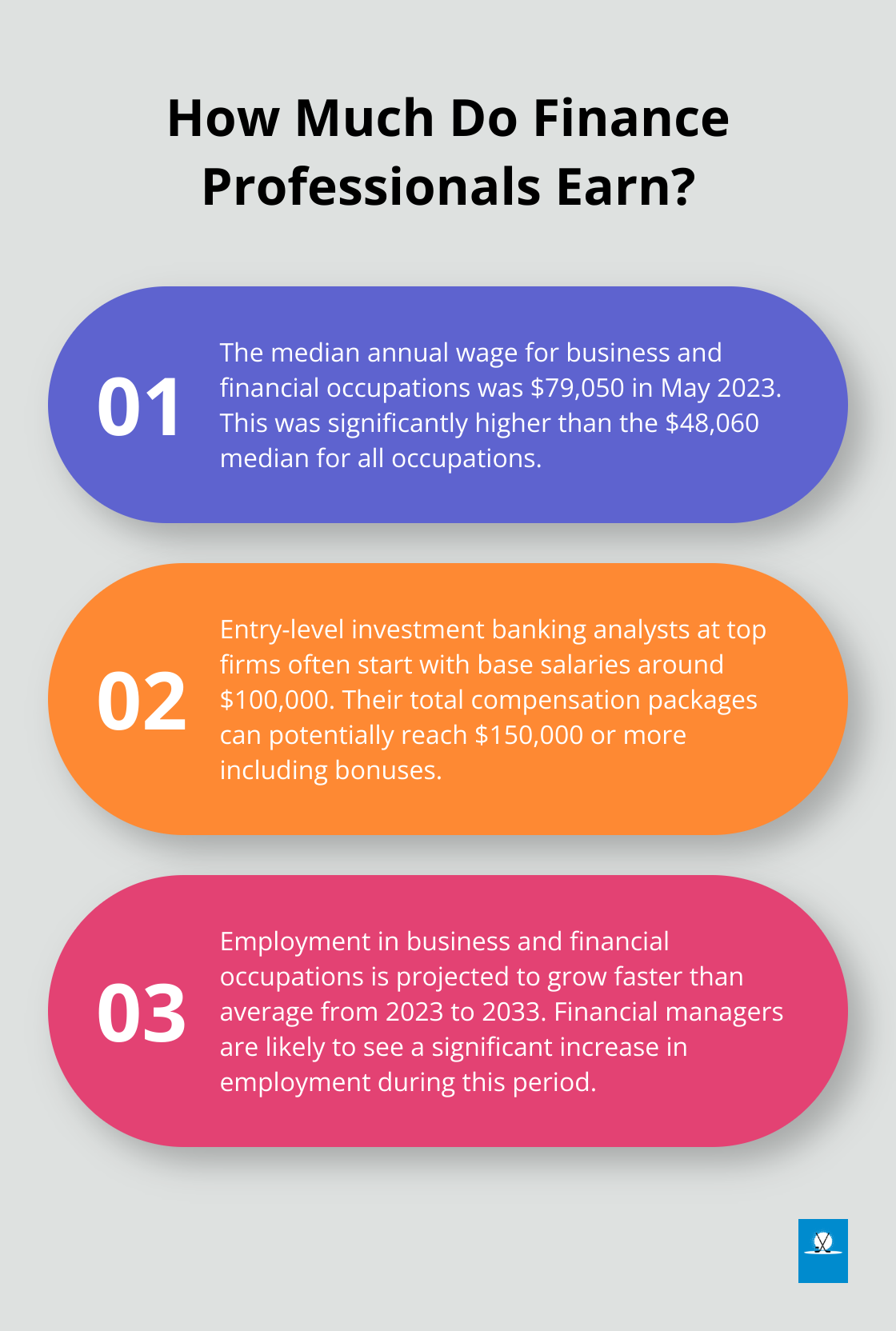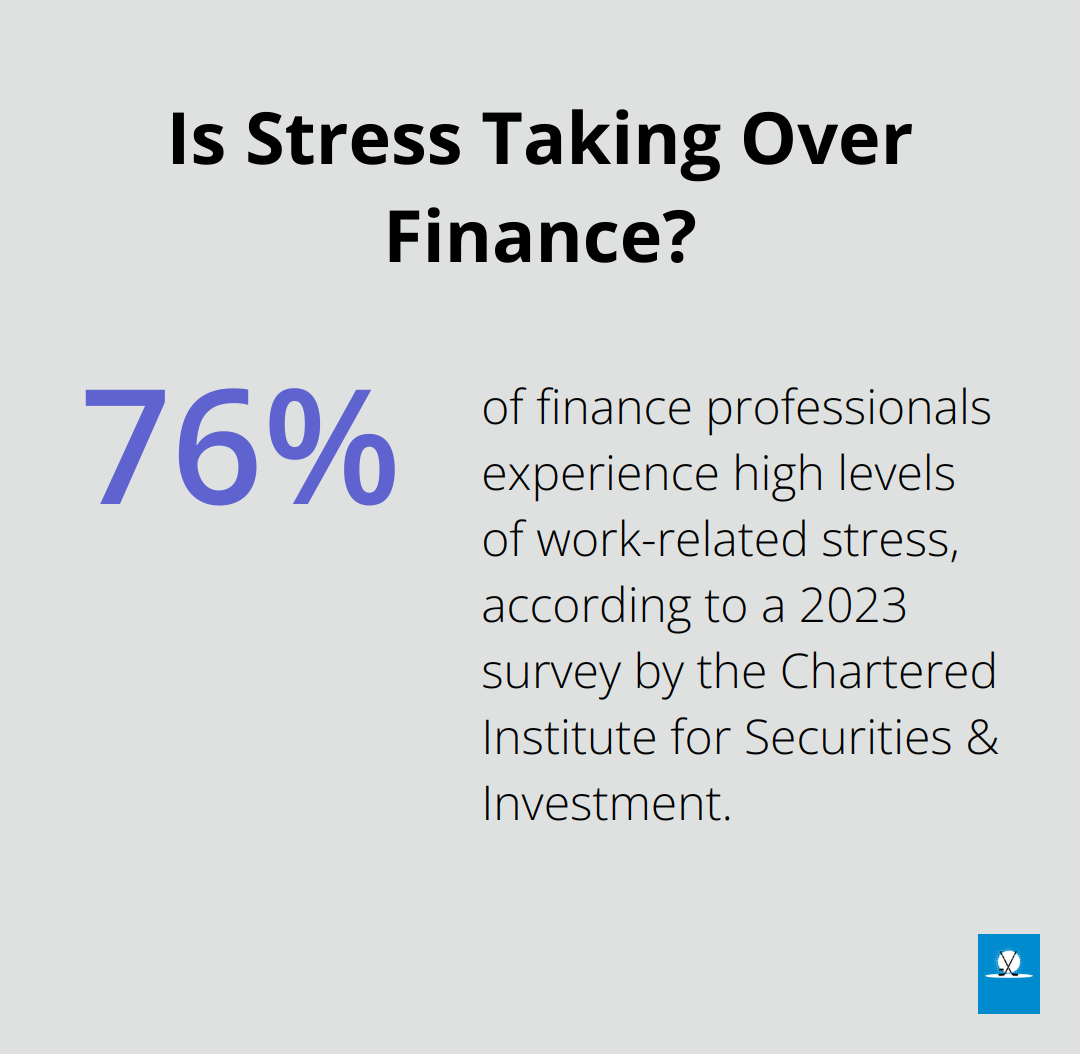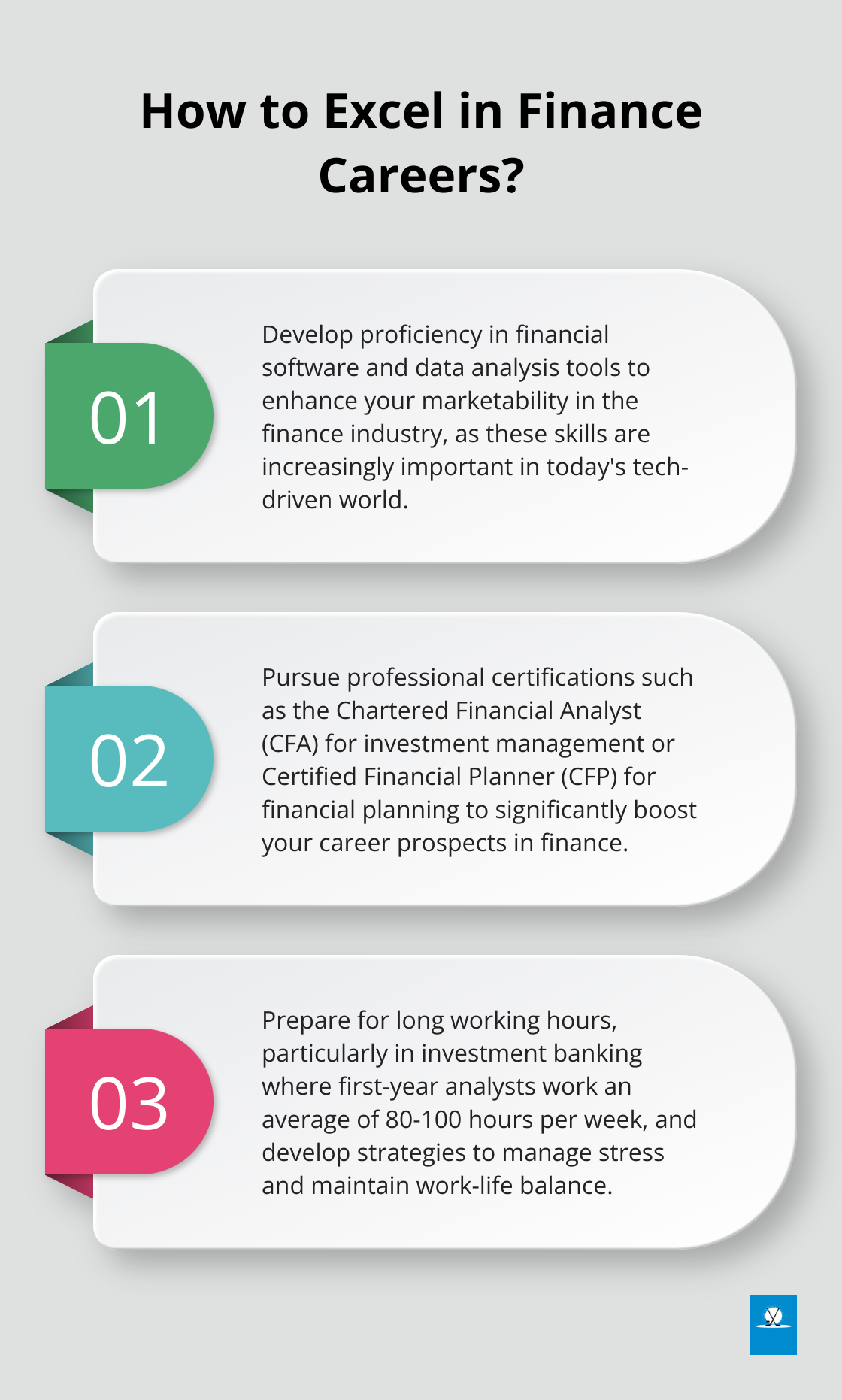At Pro Hockey Advisors, we often get asked about career paths beyond the rink. One field that frequently piques interest is finance.
What is a finance career, and could it be the right fit for you? In this post, we’ll explore the diverse world of finance, its potential rewards, and challenges to help you make an informed decision about your future.
Finance Career Paths
Finance careers offer a diverse range of opportunities, each with its own unique challenges and rewards. Many athletes transition into finance after their sports careers, attracted by the field’s dynamic nature and potential for growth.
Investment Banking
Investment banking stands at the pinnacle of finance careers. It’s a high-stakes world where professionals help companies raise capital, execute mergers and acquisitions, and provide strategic financial advice. Entry-level analysts in this field can expect long hours but also substantial compensation. As of January 2025, entry-level investment banking analysts in New York earn an average annual salary of $105,173.
Financial Planning
Financial planning offers a rewarding path for those who enjoy working directly with clients. Financial planners help individuals and families manage their money, plan for retirement, and achieve their financial goals. The Bureau of Labor Statistics projects a 17% growth rate for personal financial advisors from 2023 to 2033, much faster than the average for all occupations. This growth stems from an aging population and increasing complexity in financial products.
Corporate Finance
Corporate finance professionals work within companies to manage financial operations, analyze investment opportunities, and make strategic decisions. Roles in this area range from financial analysts to CFOs. The median annual wage for financial managers was $139,790 in May 2022, according to the Bureau of Labor Statistics, making it one of the highest-paying finance careers.
Educational Requirements
A bachelor’s degree in finance, economics, or a related field is typically the minimum requirement to succeed in finance. However, many high-level positions require or prefer a master’s degree, such as an MBA. Professional certifications can also significantly boost career prospects. The Chartered Financial Analyst (CFA) designation is highly regarded in investment management, while the Certified Financial Planner (CFP) certification is essential for those in financial planning.
Skills for Success
Success in finance demands a unique skill set. Strong analytical and quantitative abilities are essential for interpreting complex financial data. Excellent communication skills are necessary for explaining financial concepts to clients or presenting findings to executives. In today’s tech-driven world, proficiency with financial software and data analysis tools is increasingly important.

The finance industry constantly evolves, influenced by factors such as technological advancements, regulatory changes, and global economic shifts. To maintain long-term success in this field, professionals must stay current with industry trends and continuously expand their skill set. As we explore the advantages of pursuing a finance career in the next section, you’ll gain a clearer picture of whether this dynamic field aligns with your career aspirations.
Why Finance Careers Attract Top Talent
Lucrative Compensation Packages
Finance careers offer high earning potential. The median annual wage for business and financial occupations was $79,050 in May 2023, which was significantly higher than the median annual wage for all occupations of $48,060. Investment bankers, in particular, command substantial salaries and bonuses. Entry-level analysts at top firms often start with base salaries around $100,000, with total compensation packages potentially reaching $150,000 or more when including bonuses.
Robust Job Market and Growth Prospects
The finance sector demonstrates resilience and growth, even in challenging economic times. Overall employment in business and financial occupations is projected to grow faster than the average for all occupations from 2023 to 2033. This growth translates to numerous new jobs over the decade. Financial managers will likely see a significant increase in employment during this period, driven by the need for financial expertise in an increasingly complex global economy.
Intellectual Stimulation and Continuous Learning
Finance professionals often find their work intellectually stimulating and dynamic. The field requires constant adaptation to new regulations, market conditions, and technological advancements. For example, the rise of fintech creates new opportunities and challenges, requiring finance professionals to stay current with emerging technologies like blockchain and artificial intelligence. This need for continuous learning keeps the work engaging and provides opportunities for personal and professional growth.
Transferable Skills from Athletics
Many athletes successfully transition into finance careers, leveraging their discipline, teamwork skills, and competitive drive. The field’s combination of high earning potential, job stability, and intellectual challenges makes it an attractive option for those seeking a rewarding post-athletic career.

As we explore the challenges associated with finance careers in the next section, you’ll gain a more comprehensive understanding of what it takes to succeed in this demanding yet rewarding field.
The Hidden Costs of Finance Careers
Intense Work Pressure
The finance industry is known for its high-stress environment. A 2023 survey by the Chartered Institute for Securities & Investment revealed that 76% of finance professionals experience high levels of work-related stress. This pressure stems from tight deadlines, managing large sums of money, and making critical decisions that impact organizations or individual clients’ financial futures.
Work-Life Imbalance
Long hours characterize many finance careers, particularly in investment banking and corporate finance. A 2024 study by Wall Street Oasis showed that first-year investment banking analysts work an average of 80-100 hours per week. This grueling schedule can lead to burnout, affect personal relationships, and limit time for hobbies or self-care.
Fierce Competition
The finance job market is highly competitive, with top positions attracting hundreds of qualified candidates. A 2025 report by the National Association of Colleges and Employers listed finance among the top five most competitive fields for recent graduates. This competition extends beyond entry-level positions, with professionals often vying for limited spots in upper management roles.
Mental Health Concerns
The demanding nature of finance careers can take a toll on mental health. A study published in the Journal of Occupational Health Psychology (2023) found that higher financial worries were significantly associated with higher psychological distress among finance professionals. This increased risk is attributed to high-pressure work environments, long hours, and the constant need to meet performance targets.
Ethical Dilemmas
Finance professionals often face ethical challenges in their work. A survey conducted by the CFA Institute (2024) revealed that respondents identified a full range of unethical practices, including tax avoidance, pressure to manipulate financial statements, and bribery. These ethical dilemmas can create additional stress and may conflict with personal values, leading to job dissatisfaction or potential legal consequences.

Final Thoughts
A finance career offers a unique blend of challenges and rewards across diverse sectors. High earnings, job stability, and intellectual stimulation attract many, including former athletes seeking to leverage their competitive drive. However, the field’s high-pressure environment, long hours, and fierce competition require careful consideration before pursuing this path.

Pro Hockey Advisors supports athletes in exploring various career paths, including finance. We help you leverage your athletic experience in the professional world and make informed career decisions. Our team understands the importance of aligning your career choice with your values, skills, and long-term goals.
The next step for those interested in finance is to research specific roles that match their interests and strengths. Consider gaining insights from professionals in the field and exploring internships or entry-level positions. For personalized guidance on your career transition, visit Pro Hockey Advisors to learn more about our services.


